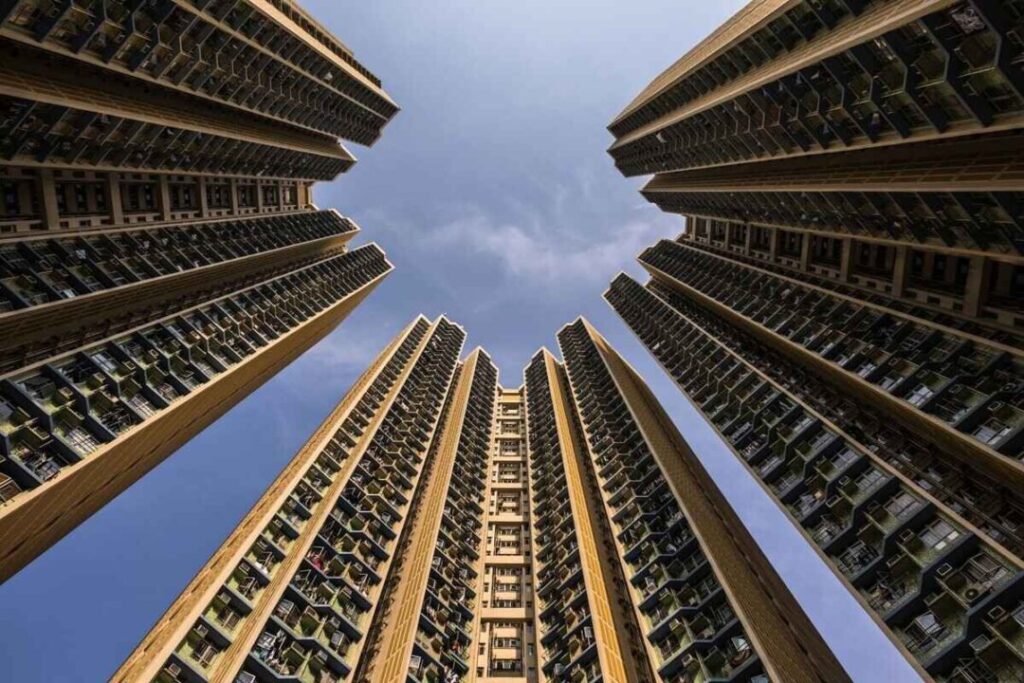Hong Kong’s lures as an international financial centre have declined, and the western capital is far from Hong Kong, said veteran banker Victor Ng Minh Thack.
The rate change sparked debate over whether Hong Kong home prices could recover from the bottom after a fall of nearly 30% from their peak, as they lower mortgage rates, ease pressure on homeowners, and potentially guiding them back to the local real estate market.
Shih Wing-Ching, chairman of Hong Kong’s real estate agency Centaline Group, recently told local media that the agency hopes the real estate market will bottom out and stabilize this year.
Investment Bank Goldman Sachs predicts that a decline in Hibor will help raise home prices and help reduce developers’ borrowing costs. We have raised the city’s housing price forecasts for 2026 and 2027 to 5% and 6%, respectively. The bank added that it expects it will take about 20 months to clear current stock in the private market of 28,000 unsold existing homes.
However, other analysts believe Hibor’s decline is just a short-term technological phenomenon, as Hong Kong’s real estate market continues to face structural challenges that mean that it is still unlikely to profit from a low interest rate environment.
Veteran banker Victor Ng Mintak has rebutted Sea’s optimism about the “Chaser News” program. This believes that the sudden decline in Hibor is a short-term phenomenon under the current trade war. Before the customs negotiation deadline on August 12th, it is led by shippers in a hurry to focus on US dollar settlement and exchanges for Hong Kong dollars. This injected excess funds into the banking system, pushing Hibor down.
However, Ng said this did not reflect an increase in demand for borrowing or investment. He also pointed out that this is not the case where people in Hong Kong manage Hong Kong and enjoy high levels of autonomy.
Hong Kong’s appeal as an international financial centre has faded, and its western capital is far from Hong Kong, he said. He believes that a 30% drop in home prices is far from the bottom, and that the current situation is not a cyclical change, but a structural adjustment.
Foreign capital withdrawal and stagnant economy
Hong Kong’s real estate market faces pressure from all sides.
On May 21, Hong Kong Real Estate Giant New World Development Co. Ltd. sought to refinance a loan worth HK$87.5 billion (approximately $11.2 billion). As one of Hong Kong’s four traditional real estate developers, if the New World is the default, it could affect investors’ trust and bank’s real estate loan portfolio.
The company’s revenue has been declining for the fourth consecutive year. In 2024, we recorded our first net loss in 20 years. In February 2025, it reported a net loss of HK$6.6 billion ($852 million). Its total liabilities reached $146 billion ($18.7 billion) and its cash reserves were only $22 billion ($2.8 billion).
Local real estate tycoons such as Jacinto Tong, CEO of Gale Well Group Ltd. and “Magnetic Tape King” Chan Ping-chi have sold their real estate in succession to repay their debt, reflecting the financial pressures of real estate investors.
The weaknesses in the retail and job markets have further exacerbated the challenges in the housing market. In 2025, the Ocean Empire Food Shop chain was completely shut down, with roughly 100 employees owing a total of about $15 million ($1.9 million) of unpaid wages. Other notable examples of closures include Uniqlo’s Tsuen Wan Store and Eggslut’s Causeway Bay Store after about two years of operation.
Hong Kong’s taxi trade is also facing a recession. As of May 19, the city’s taxi licensing market value had fallen to HK$2.18 million ($280,000), down nearly 70% from HK$723 million ($930,000) in 2013.
Financial expert Simon Lee said in his “Zhen Talk” program that a decline in home prices in Hong Kong is not an issue in itself, leading to negative assets. The fundamental problem lies in the city’s worsening economic environment. He said rising unemployment has made it difficult for homeowners to pay mortgages, and some people have to borrow or borrow money at low prices to get through difficult times.
He added that if the recession continues, the financial system will be affected.
Greater Bay Area
As the benefits of Hong Kong’s “one country, two systems” continue to erode, housing prices in Shenzhen, Guangzhou and elsewhere are also putting pressure on Hong Kong’s home prices.
Cai Zi, a columnist for the Chinese Epoch Times, pointed out that Hong Kong’s traditional advantage of being “just as valuable as gold” is gradually fading away. As Hong Kong’s economy and policy are increasingly in line with the economy of mainland China, in theory, the prices of financial assets gradually converge with mainland prices, he writes.
Coupled with the fact that Hong Kong’s birth rate has fallen to a historic low low, he said retired Hong Kong people have moved north to buy property and cut their living costs, further weakening Hong Kong’s housing needs.
Even if the Hong Kong government advocates a plan to “attract talent,” experts who come to Hong Kong to work for several years and earn money will likely go home to buy their wealth.
“The same amount can easily buy two or three units when you get home,” Cai writes.


